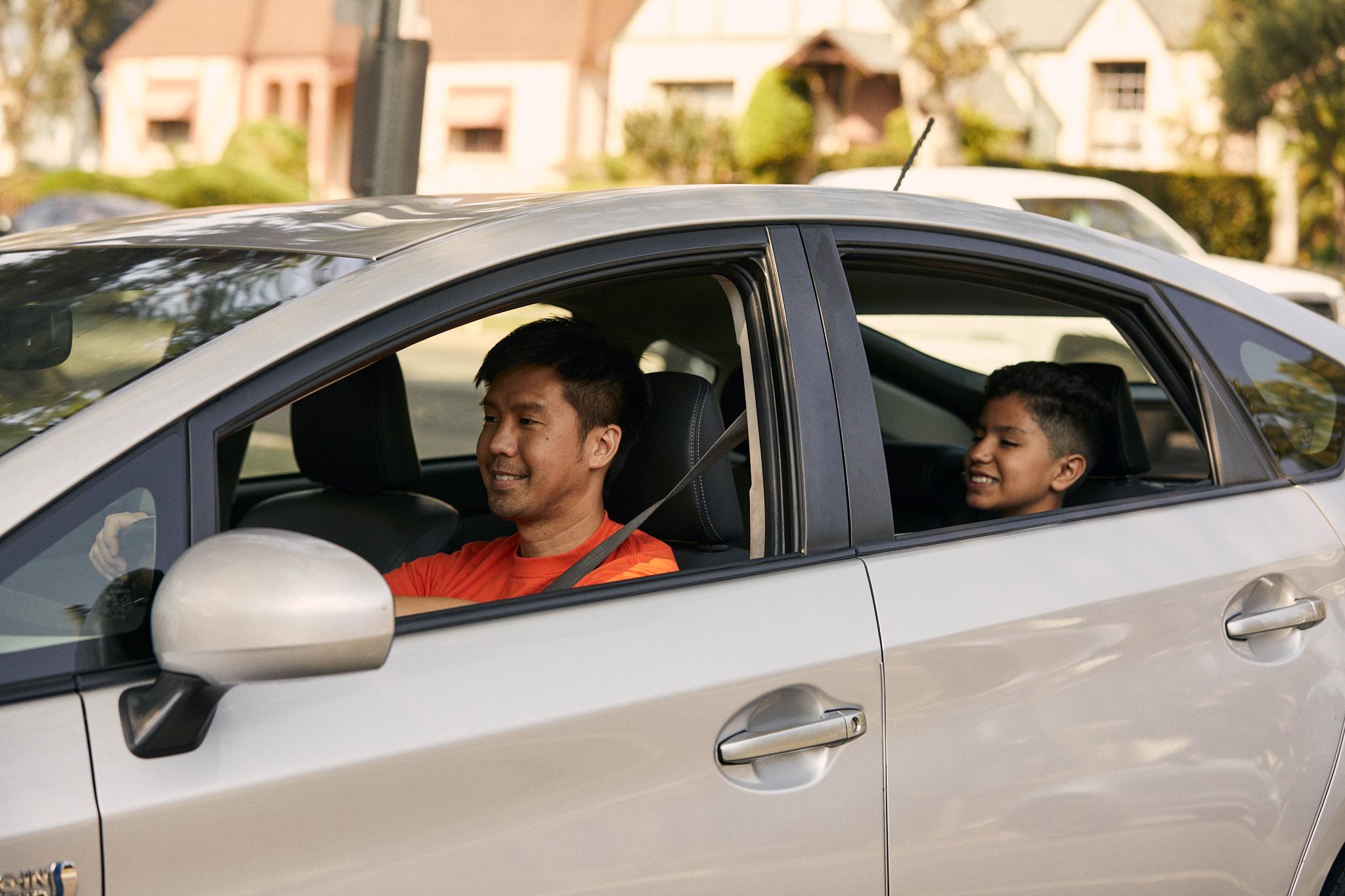Foster Care Transportation Tips

When it comes to transporting students to and from school, as well as to other extracurricular activities and appointments, HopSkipDrive understands the importance of safe and consistent transportation. This is especially true for students from particularly vulnerable groups, including students in foster care.
Reliable transportation can be a source of stability in the lives of students in foster care, even as their home circumstances change. It also enables them to attend their school of origin, arrive at school relaxed and ready to learn, and partake in the same activities and opportunities as their peers.
Watch, for example, this video about an 18-year-old student in foster care who graduated with honors thanks to the reliable school-of-origin transportation her school provided by partnering with HopSkipDrive.
In this article, we offer five transportation tips designed to provide consistent and productive transportation experiences for students currently living in foster care.
Use a Trauma-Informed Care Approach
When transporting students who are under the care of foster families, all drivers — whether legal guardians, carpool drivers, bus drivers, or CareDrivers using the HopSkipDrive platform — should be familiar with the basics of trauma-informed care.
Students in foster care may have experienced trauma during their removal from their family home, separation from siblings or close friends, or placement in new foster homes. Drivers should understand these potential challenges and thoughtfully plan ride details to create the most supportive experience possible.
Working with a student’s foster family is another way to gain more insight into their situation, which will enable anyone working with the student to provide a more positive, trauma-informed experience.
Normalize Little Things
A trauma-informed approach to foster care transportation is essential. But so, too, is giving students in foster care a sense of normalcy.
Simple ways to help students in foster care feel comfortable and welcomed include:
Making small talk about topics the student expresses interest in
Letting the student select music to listen to during the drive
Allowing them to act their age and be themselves
Showing genuine interest in their school activities, achievements, or hobbies
Offering small choices when possible, such as preferred pickup spots or whether they’d like the window down
Maintaining consistent, warm greetings that help build familiarity and trust
Organizations working with students in foster care have seen firsthand how this familiarity and consistency helps students feel more secure and engaged. “We even have a few HopSkipDrive CareDrivers we now know personally. For our youth, that familiarity is great,” said Syd Steward, Founder and CEO of Better Youth.
Watch for Cues
All children have good and bad days, and students in foster care are no different. How you respond to their mood can set the tone for the entire ride.. Paying attention to demeanor, facial expressions, body language, and overall behavior can provide clues to a child’s feelings in any given moment.
A talkative rider likely means they’re open to conversation and engagement
Students acting reserved, avoiding eye contact, and staying quiet might need a little space
When they’re excited about a test score, joining the school play, or making new friends, warm congratulations can enhance the positive vibes
Steer Clear of Triggers
While it’s impossible to read anyone’s mind, there are steps drivers can take to reduce the risk of accidentally triggering a student who is living in foster care. Unfortunately, some of these triggers may not be immediately apparent.
Use Consistent Driving Routes
Driving through different parts of town may stir up a wide range of emotions for some students in foster care. This is especially true if a specific location is associated with old memories or traumas. One of the best examples of this is driving past a family member’s house, or maybe an old favorite restaurant.
Knowing every single area to avoid is impossible, but simply driving the same route to and from school every day will increase the certainty that it’s comfortable for the student.
Be Cognizant of Sensitive Subjects
Things that might feel ordinary to talk about can trigger challenging feelings and traumatic memories for students living in foster care. It’s best to avoid specific topics altogether, such as:
Family-centric holidays like Thanksgiving, Christmas, or Hanukkah
Family and pets
Summer and winter vacations
Personal living situations or family history
Thinking before you speak is required when navigating conversations with students in foster care.
Consistency, Empathy, and Reliability Matter
Most people thrive on routine, and children are no exception. Regularity and dependability are even more important for students who’ve experienced trauma from displacement in their childhoods. Anyone entrusted to provide foster care transportation for students plays a crucial role in creating a positive, reliable touchpoint in their daily lives.
Since some students in foster care frequently move from home to home, their school of origin may be the only constant in their lives. By helping them get to and from that school, foster care transportation is a significant service that requires attention and care.
When it comes to HopSkipDrive’s network of CareDrivers, for example, we understand that the little things can make a big difference. CareDrivers on our platform are highly vetted caregivers — parents, grandparents, former teachers, babysitters, and more. They know the importance of a consistent experience, including:
Always arriving at the established pickup time
Driving the same route to school
Paying attention to ride details to ensure the student’s specific needs are met
This is one of the reasons why CareDrivers must have caregiving experience. Strengthening our foster care transportation approach with this caregiving requirement ensures that CareDrivers have the empathy and experience needed to work with vulnerable students.
HopSkipDrive’s flexible model is specifically designed for the sometimes unpredictable nature of foster care placements. We can arrange rides with as little as six hours’ notice when a child's placement is abruptly changed, ensuring uninterrupted access to their school of origin.
Consistency Matters When it Comes to Students in Foster Care
Consistent, thoughtful care goes a long way for any stakeholders serving young people in foster care.
Through their expertise and a partnership with HopSkipDrive, First Star — a national nonprofit dedicated to helping youth in foster care access quality education, support, and the resources needed for a successful transition to adulthood — has enabled transportation for students in foster care, which goes a long way toward empowering these students toward success.
“Once we get them there, we have programming, dedicated staff, and everything else needed to support them... Being able to provide transportation and take that hurdle out of the equation really makes a huge difference for us,” says Brian Ritchey, Senior Director of Academy Partnerships at First Star. Over 98% of First Star scholars graduate from high school, with more than 60% advancing to higher education. These numbers demonstrate what’s possible when students in foster care have reliable transportation.
Want to learn more about how HopSkipDrive partners with counties and school districts all over the country to provide a student transportation solution for students in foster care?


